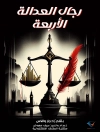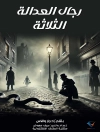ENFP personality is highly perceptive and thoughtful; they like to be around other people and have a strong intuitive nature. In this book you will find seven short stories specially selected to please the tastes of the ENFP. These are stories by renowned authors that will surely bring reflections, insights and fun to people with this kind of personality.
This book contains:
– A Dark Brown Dog by Stephen Crane.
– A Newspaper Story by O. Henry.
– One Autumn Night by Maxim Gorky.
– A Country Doctor by Franz Kafka.
– Heroism by Ralph Waldo Emerson.
– Meditations: Book Eight by Marcus Aurelius.
– The Doll’s House by Katherine Mansfield.For more books that will suit you, be sure to check out our Two Classic Novels your Myers-Briggs Type Will Love collection!
***
Cover image: Joseph Haydn (1732 – 1809) Austrian composer of the Classical period and ENFP.
关于作者
Stephen Crane was an American poet, novelist, and short story writer. Prolific throughout his short life, he wrote notable works in the Realist tradition as well as early examples of American Naturalism and Impressionism. He is recognized by modern critics as one of the most innovative writers of his generation.
William Sydney Porter, better known by his pen name O. Henry, was an American short story writer. O. Henry’s stories frequently have surprise endings. In his day he was called the American answer to Guy de Maupassant. While both authors wrote plot twist endings, O. Henry’s stories were considerably more playful, and are also known for their witty narration. Most of O. Henry’s stories are set in his own time, the early 20th century. Many take place in New York City and deal for the most part with ordinary people: policemen, waitresses, etc.
Alexei Maximovich Peshkov was a Russian and Soviet writer, a founder of the socialist realism literary method, and a political activist. He was also a five-time nominee for the Nobel Prize in Literature. Around fifteen years before success as a writer, he frequently changed jobs and roamed across the Russian Empire; these experiences would later influence his writing. He had an association with fellow Russian writers Leo Tolstoy and Anton Chekhov; Gorky would later mention them in his memoirs.
Franz Kafka was a German-speaking Bohemian novelist and short-story writer, widely regarded as one of the major figures of 20th-century literature. His work, which fuses elements of realism and the fantastic, typically features isolated protagonists facing bizarre or surrealistic predicaments and incomprehensible socio-bureaucratic powers, and has been interpreted as exploring themes of alienation, existential anxiety, guilt, and absurdity.
Marcus Aurelius was Roman emperor from 161 to 180 and a Stoic philosopher. He was the last of the rulers traditionally known as the Five Good Emperors, and the last emperor of the Pax Romana, an age of relative peace and stability for the Roman Empire. He served as Roman consul in 140, 145, and 161. The Column and Equestrian Statue of Marcus Aurelius still stand in Rome, where they were erected in celebration of his military victories. Meditations, the writings of ‘the philosopher’ as contemporary biographers called Marcus, are a significant source of the modern understanding of ancient Stoic philosophy. They have been praised by fellow writers, philosophers, monarchs, and politicians centuries after his death.
Kathleen Mansfield Murry was a prominent New Zealand modernist short story writer and poet who was born and brought up in colonial New Zealand and wrote under the pen name of Katherine Mansfield. At the age of 19, she left New Zealand and settled in England, where she became a friend of writers such as D. H. Lawrence and Virginia Woolf. Mansfield was diagnosed with extrapulmonary tuberculosis in 1917; the disease claimed her life at the age of 34.












